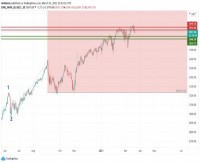|
Opalesque Industry Update - A new report from MSCI ESG Research called "Ownership and Control 2022: Global Equities Concentration on the Rise, " reveals trends toward greater concentration in ownership of corporations and the implications of these trends for investors in those companies. MSCI ESG Research says: • Controlled companies accounted for nearly 46% of all constituents of the MSCI ACWI Index by count, as of Feb. 1, 2022, a considerable increase from the 32% we reported in 2015. On the basis of market cap share, controlled companies accounted for 35% of the index, up from just 26% in 2015. The increase changes the governance risks faced by other investors in such companies, who face more principal than agent risks, as each type of risk is described below. • In contrast, widely held companies dropped from representing 52% to 40% of index market cap, and the percentage of companies by count that were widely held dropped from 41% to just 23% - another clear indicator of increased ownership concentration. • We also found increased concentration among all index constituents that lacked a controlling shareholder, especially among U.S. listed companies. Among widely held and principal-shareholder companies globally, BlackRock held 5% or more of 638 index constituents, 458 of which were U.S. listed, and Vanguard held 5% or more of 424 index constituents, 395 of which were U.S. listed. • Some of these changes are attributable to the more than 400 new Chinalisted constituents of the index, many of which are founder or state controlled, but the market cap share of U.S. listed companies also increased by 5% since 2015, confirming a more widespread increase in ownership concentration.
Ric Marshall, executive director at MSCI ESG Research said: "The prominence and importance of large asset managers and certain other institutional investors as major shareholders of public companies is not new. The scope of their ownership and voting power across the publicly listed company landscape, however, represents a significant shift. From a corporate governance perspective, that's neither good nor bad. These investors are typically not the ultimate beneficial owners of publicly traded companies. They are complex intermediaries that have and can take steps to encourage their many institutional and in some cases individual clients to exercise their shareholder rights. With a range of other trends also increasing ownership concentration across global equity markets coming to light, the investing community will continue to examine and better understand the push-and-pull forces that influence corporations' management decisions." Jonathan Ponder, the report's co-author, said: "The communications and information technology industries serve as strong case studies for the complexity and lingering questions regarding ownership concentration trends in the past five years. On the back of significant financial growth, some founders of newer companies in these sectors have maintained their control on company management and structure. Other companies in these sectors have attracted significant institutional investor interest due to strong stock performance, tipping the principal shareholder scales. But it's too early to tell if those founders will retain their influence over the long term, for example, or how potential changes in investor allocations in bear market scenarios could influence the owner mix. A wide range of economic, market, governmental, and cultural influences make the implications of corporate ownership concentration difficult to pinpoint." Article source - Opalesque is not responsible for the content of external internet sites |
Industry Updates
MSCI ESG research: Global equities ownership concentration rising
Tuesday, July 12, 2022
|
|





 RSS
RSS







